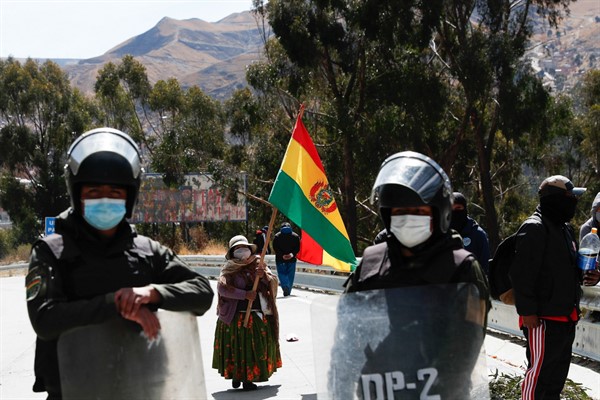It was probably just a matter of time before Bolivia’s response to the coronavirus became viscerally polarized. With an unelected interim government appearing to overstep its mandate and repeatedly pushing back new elections, and an opposition embittered by the ousting of the previous president, Evo Morales, over alleged electoral fraud, the Andean nation was already desperately divided before being hit by the pandemic. Now, however, Bolivia is mired in a partisan fight over who is responsible for the deaths of COVID-19 patients due to dire shortages of oxygen in hospitals.
The trigger came last month when supporters of Morales blockaded roads across the country. They were furious that elections, originally scheduled for May 3, have been pushed back a third time, to Oct. 18, because of the pandemic. That delay means that the interim president, Jeanine Anez, a staunch religious conservative who temporarily assumed the presidency from her seat in the Senate last year, after Morales’ forced resignation, will be in power for almost exactly a year. Among other demands, the protesters want Anez to resign immediately.
With hospitals overwhelmed by the pandemic, the government accuses the protesters of preventing ambulances and oxygen supplies from reaching key cities, including the political capital, La Paz. Government officials claim that at least 30 people have died from the oxygen shortages that they blame on the demonstrations and have ordered the arrest of the protest leaders. They accuse Morales, who is in exile in Argentina, and his former economy minister, Luis Arce—now the presidential candidate of Morales’ Movement Toward Socialism party, or MAS by its Spanish initials—of sedition and terrorism for encouraging the protests.

